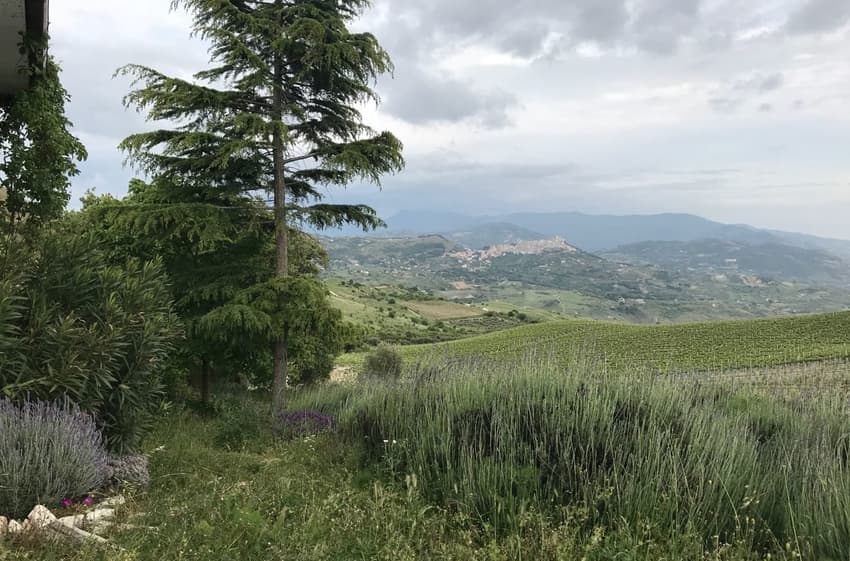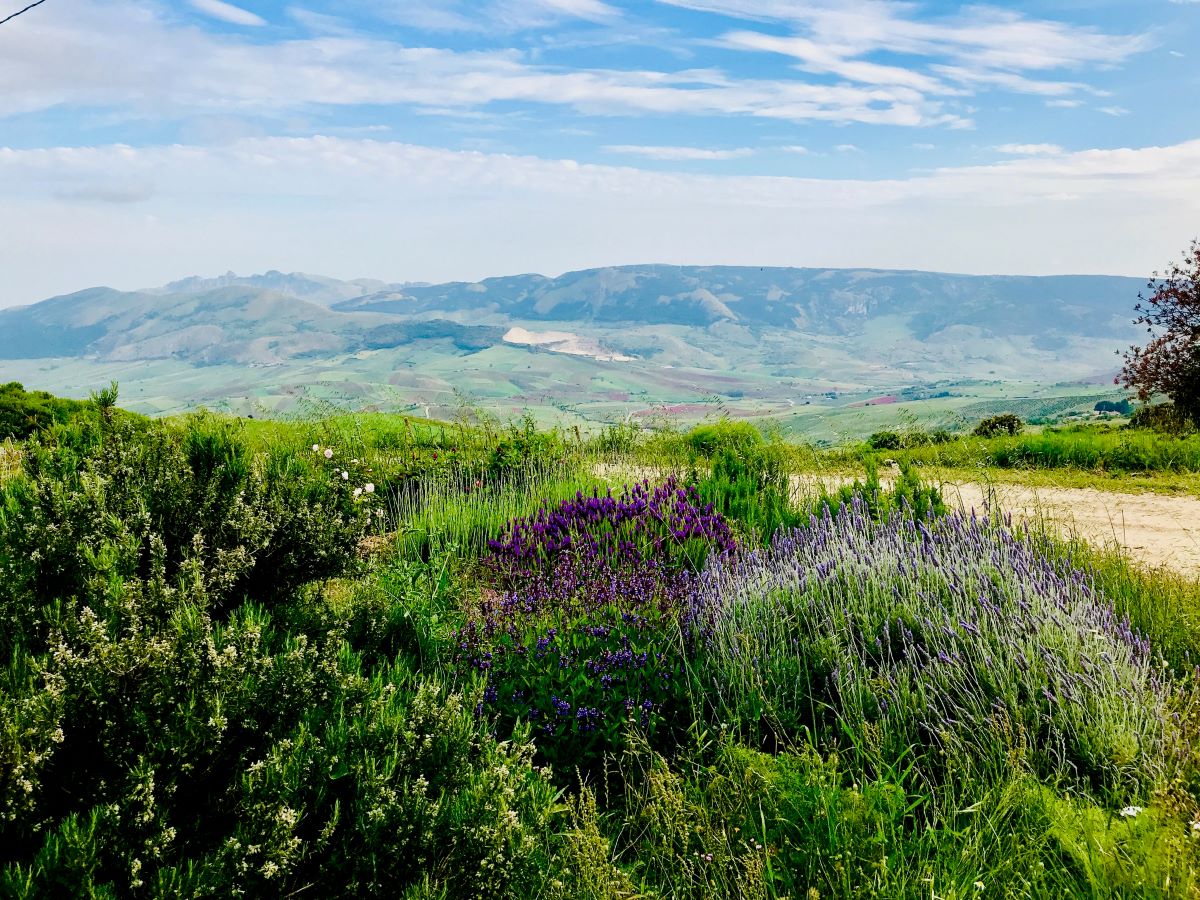‘We bought and renovated a one-euro home in Italy - then had to give it back’

Italy’s cheap home offers may sound too good to be true, and sometimes they are, as one Dutch couple told reporter Silvia Marchetti.
The one-euro home schemes run by many Italian towns are well known and attract buyers from around the globe. While most sales run smoothly, one foreign couple told us how they went through a nightmare.
Three years ago, Dutch retirees Maria and Peter Jansen, in their 70s, snapped up a rural farm in Sicily which had been listed for the symbolic price of €1, only to find out two years later, once they had spent money to renovate it, that it still had an owner who turned up last-minute to claim it back.
MAP: Where in Italy can you buy homes for one euro?
The couple was forced to give up the house, losing money. They returned to Amsterdam, where they still owned a family apartment.
The farm was located in the countryside of Enna, and the agency that had placed the ad online had assured the couple it had long been abandoned by emigrés who had fled to Canada in the early 1900s in search of a brighter future, leaving no heirs behind.
After viewing online photos of the property, the Jansens flew over to see it, made an offer of €10,000, completed the sale and then spent some €80,000 to renovate it.
“There was a lot of work to do,” says Maria. “We had to nearly rebuild all three floors, redo the four bedrooms, add two bathrooms and repaint the whole 200 square-metre cottage.
READ ALSO: 'Italy's one-euro homes cost a lot more than one euro - but can be worth it'
“It was a shock when the heir turned up out of the blue just a week after the renovation had finished.”
Usually, homes listed at the symbolic price of €1 are sold by the local council in depopulating towns, and potential buyers must make an offer, usually of a few thousand euros.
Occasionally however local agencies may put abandoned properties up for sale too, which have long been without a known owner.
“We were living in our rural idyll, amid sheep and pristine views. We had settled in, made new friends and even started an orchard. But then one sunny Sunday morning a lady in her 50s knocked at our door, bearing bad news”, says Peter.

Photo: Maria and Peter Jansen
She told them she was the last remaining descendant of the emigrant family, and had immediately jumped on a plane when a friend in Enna, who had heard about the sale, told her the Jansens were now living at her nonna’s farm.
The lady, who lives in Toronto, showed the Jansens the ownership deed which proved the cottage was hers.
The property is located in a wood in the middle of nowhere and on the boundary between two small towns, and neither had a copy of the deed in their archives, the couples later discovered after digging into the “surreal story”, as they describe it.
“She told us she had sued the agency for not notifying her of the potential sale of the cottage, for she claimed everyone in the area knew about her existence, even if she lived overseas, and some locals even had her Toronto contact details”, says Maria.
READ ALSO: How to avoid hidden traps when buying an old property in Italy
When the couple spoke to the agency, they said they had sent a notification letter to the last-known Toronto address of the emigrant family years before placing the online ad, but it bounced back, so thought they were in the clear to place the house on the market as it had been completely abandoned. It was also at risk of collapsing.
The woman who came forward was the sole heir of the family who had migrated to Canada in the 1930s, and so claimed back the cottage to reconnect with her Sicilian roots.
Even though she seldom visited from Canada, once she heard about the sale of her family cottage she felt determined to get back what was hers and which had wrongly been sold without permission.
The Jansen were desperate: their dream was shattered and they expected to lose all the money they had invested in the cottage.
Luckily for them, the Italian-Canadian heiress proved very compliant and agreed to pay 80 percent of the renovation costs, plus she bought all the furniture the Jansens had already put inside.
“Looking back now we can say we were ‘fortunati nella sfortuna’ as Italians say (lucky in our mishap).
“The lady understood that we did not illegally take her home and we thought all was fine paper-wise, that we had had total trust in the agency. So in the end we lost, yes, quite a bit of money, but it could have been worse”, says Peter.
The agency who had sold them the cottage apologised, saying it had tried to track down any heirs before placing it on the market, but that similar searches don’t bear immediate results and may come with nasty last-minute surprises.
The Jansens, overwhelmed by the inconveniences they had faced, did not sue the agency for the €10.000 sale, knowing that Italian justice is sluggish and costly to pursue.
“A trial would have started a years-long drama without any certainty of payback,” says Maria.
“While we may not have been able to recover our lost money for the purchase, surely we would have spent nearly as much, if not more, on lawyers.”
Comments (3)
See Also
The one-euro home schemes run by many Italian towns are well known and attract buyers from around the globe. While most sales run smoothly, one foreign couple told us how they went through a nightmare.
Three years ago, Dutch retirees Maria and Peter Jansen, in their 70s, snapped up a rural farm in Sicily which had been listed for the symbolic price of €1, only to find out two years later, once they had spent money to renovate it, that it still had an owner who turned up last-minute to claim it back.
MAP: Where in Italy can you buy homes for one euro?
The couple was forced to give up the house, losing money. They returned to Amsterdam, where they still owned a family apartment.
The farm was located in the countryside of Enna, and the agency that had placed the ad online had assured the couple it had long been abandoned by emigrés who had fled to Canada in the early 1900s in search of a brighter future, leaving no heirs behind.
After viewing online photos of the property, the Jansens flew over to see it, made an offer of €10,000, completed the sale and then spent some €80,000 to renovate it.
“There was a lot of work to do,” says Maria. “We had to nearly rebuild all three floors, redo the four bedrooms, add two bathrooms and repaint the whole 200 square-metre cottage.
READ ALSO: 'Italy's one-euro homes cost a lot more than one euro - but can be worth it'
“It was a shock when the heir turned up out of the blue just a week after the renovation had finished.”
Usually, homes listed at the symbolic price of €1 are sold by the local council in depopulating towns, and potential buyers must make an offer, usually of a few thousand euros.
Occasionally however local agencies may put abandoned properties up for sale too, which have long been without a known owner.
“We were living in our rural idyll, amid sheep and pristine views. We had settled in, made new friends and even started an orchard. But then one sunny Sunday morning a lady in her 50s knocked at our door, bearing bad news”, says Peter.

She told them she was the last remaining descendant of the emigrant family, and had immediately jumped on a plane when a friend in Enna, who had heard about the sale, told her the Jansens were now living at her nonna’s farm.
The lady, who lives in Toronto, showed the Jansens the ownership deed which proved the cottage was hers.
The property is located in a wood in the middle of nowhere and on the boundary between two small towns, and neither had a copy of the deed in their archives, the couples later discovered after digging into the “surreal story”, as they describe it.
“She told us she had sued the agency for not notifying her of the potential sale of the cottage, for she claimed everyone in the area knew about her existence, even if she lived overseas, and some locals even had her Toronto contact details”, says Maria.
READ ALSO: How to avoid hidden traps when buying an old property in Italy
When the couple spoke to the agency, they said they had sent a notification letter to the last-known Toronto address of the emigrant family years before placing the online ad, but it bounced back, so thought they were in the clear to place the house on the market as it had been completely abandoned. It was also at risk of collapsing.
The woman who came forward was the sole heir of the family who had migrated to Canada in the 1930s, and so claimed back the cottage to reconnect with her Sicilian roots.
Even though she seldom visited from Canada, once she heard about the sale of her family cottage she felt determined to get back what was hers and which had wrongly been sold without permission.
The Jansen were desperate: their dream was shattered and they expected to lose all the money they had invested in the cottage.
Luckily for them, the Italian-Canadian heiress proved very compliant and agreed to pay 80 percent of the renovation costs, plus she bought all the furniture the Jansens had already put inside.
“Looking back now we can say we were ‘fortunati nella sfortuna’ as Italians say (lucky in our mishap).
“The lady understood that we did not illegally take her home and we thought all was fine paper-wise, that we had had total trust in the agency. So in the end we lost, yes, quite a bit of money, but it could have been worse”, says Peter.
The agency who had sold them the cottage apologised, saying it had tried to track down any heirs before placing it on the market, but that similar searches don’t bear immediate results and may come with nasty last-minute surprises.
The Jansens, overwhelmed by the inconveniences they had faced, did not sue the agency for the €10.000 sale, knowing that Italian justice is sluggish and costly to pursue.
“A trial would have started a years-long drama without any certainty of payback,” says Maria.
“While we may not have been able to recover our lost money for the purchase, surely we would have spent nearly as much, if not more, on lawyers.”
Join the conversation in our comments section below. Share your own views and experience and if you have a question or suggestion for our journalists then email us at [email protected].
Please keep comments civil, constructive and on topic – and make sure to read our terms of use before getting involved.
Please log in here to leave a comment.